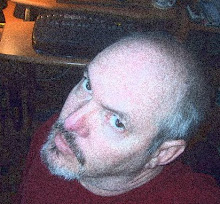It will take several more weeks to tally the number of people left dead, injured and displaced by Hurricane Katrina. This disaster was big news, mainly because much of the destruction was concentrated on the heavily populated and historic city of New Orleans. If a hurricane of equal force had struck a village in Mozambique you can be most certain that it would not have received the exhaustive 24/7 coverage that the Katrina/New Orleans disaster did.
Just last December the world was shocked by the Indian Ocean tsunami, a disaster that left an estimated 125,000 people dead and over 5 million homeless. Remember the horrific earthquake in the Iran town of Bam in 2003? That occurred exactly one year before the tsunami, leaving over 40,000 dead and almost 100,000 homeless. Then there are the recent mudslides in Brazil, fires in France, starvation in Sudan, and yet more fatal ferry accidents in Bangladesh. Across our globe tragedy abounds on a daily basis. Just last week in Japan, Typhoon Nabi killed over 40 people and flooded over 10,000 homes. Ho hum, just another natural disaster. But really, it becomes pointless to argue which disaster is worse, or which is more devastating. You can start counting the number of dead, the ones injured, or those left homeless; but in the end, every disaster is horrible.
One interesting sociological aspect to these tragedies is seeing how the native populations deal with the initial adversity. After the Asian tsunami, local communities in Thailand, Indonesia and Sri Lanka pitched in to help one another and although there were reports of looting, it was minimal. By contrast, many people around the world were shocked to see images of widespread looting and lawlessness that abounded in New Orleans after the hurricane. Is this just the reaction of a desperate populace or indicative of an America that has gone morally astray?
I read an interview last week with Richard Sennett, a professor of Sociology at MIT, and the author of several books (The Hidden Injuries of Class and The Corrosion of Character). He claims that “what happened in New Orleans was not an event. It was the end point of a long process of degradation of American civic life and the evisceration of the state. The inability to deal with the crisis is, in my view, one of the first signs of the decay of the United States.”
Sennett explained that many citizens, responding to what they perceive as decades of injustice, released “a kind of psychological rage” and resorted to looting and destructive behavior. By contrast, Sennett noted that after the Indian Ocean tsunami the victims “despite their poverty…exhibited an enormous collective solidarity in the wake of catastrophe.” This, he reasoned, was because these people were a “socially visible” presence in their communities and not simply a disenfranchised minority.
The ripple effects of Hurricane Katrina will continue for years. It will be interesting to see how the USA responds to the many problems that have reared their ugly heads in the hurricane’s wake.
9.19.2005
Subscribe to:
Post Comments (Atom)


1 comment:
At Jazz at Lincoln Center's "Higher Ground" hurricane relief benefit concert over the weekend Danny Glover said "When the hurricane struck, it did not turn the region into a Third World country … it revealed one" If any of you get a chance to watch a re-run of that concert I urge you to take advantage of it. It was excellent!
Post a Comment